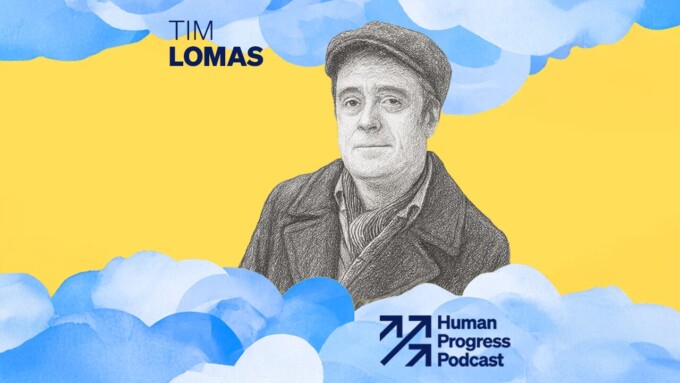I think it is fair to say that Anno Domini MMXX has not turned out the way that many of us hoped or expected. Those who spent many hours in pandemic-induced isolation binge-watching The Crown will recall Queen Elizabeth’s famous reference to the year of the Windsor Castle fire as her annus horribilis. With typical British understatement, she said that “1992 is not a year on which I shall look back with undiluted pleasure.” How apposite with regard to the year that’s about to expire.
Throughout the world, close to two million people have perished from COVID-19 and millions more mourn the loss of their loved ones. The former includes a Human Progress Advisory Board Member Professor Deepak Lal, a great economist and gentleman, who was always gracious and full of encouragement. We also lost Professor Walter Williams, whose writings taught me the little I know about economics.
Speaking of which, the global economy took a nasty blow, with unemployment suddenly rising, budget deficits exploding and debt ballooning. Beyond the macroeconomic shocks, some of the hard-won gains in our struggle against poverty, hunger and other indicators of human well-being are sure to be lost. And, of course, the long-term effects of the pandemic on politics and economics worldwide are yet to be determined.
Amidst all the gloom, it is important to keep in mind that human progress is not a smooth upward curve. Rather, it is a jagged one. Western Europe, for example, experienced tremendous economic, political, technological, scientific, and medical advances during the century that separated the end of the Napoleonic Wars (1803 – 1815) and 1914, only to descend into the barbarism of World War I and World War II. Yet, Europe rebounded, just as it did when the Dark Age that followed the fall of Rome gave way to the light of the Renaissance.
Setbacks, in other words, are to be expected. That, alas, is the fate of a species inhabiting a universe that tends toward entropy. To quote the Harvard psychologist Steven Pinker, “Progress is not magic. Progress is not perfection … It doesn’t mean that everyone is maximally happy. It doesn’t mean that everything gets better for everyone everywhere all the time and always … that would be a miracle.”
That being said, let’s briefly consider the things that did not happen. The novel coronavirus, while serious, was much less deadly than it could have been. It targeted the old and the sick, which is bad enough, but generally spared the young. The healthcare systems did not collapse and close to 60 million people have recovered from the illness. Social order, by and large, endured. Technology kept many of us productive, connected to our friends and family, and (semi-)sane.
The COVID-19 damage, in other words, was mitigated by the stock of human knowledge and by our past accomplishments. And that brings me to medical science … Humanity has suffered from deadly diseases for millennia without fully knowing what they were, how they were transmitted, or how they could be cured. The fate of humanity, our ancestors thought, fluctuated under the arbitrary influence of higher powers, and there was nothing that anyone could do about it.
Contrast that glacial pace of progress, and the fatalistic acceptance of disease and death, with our response time to the COVID-19 pandemic. On December 31, 2019, a cluster of “pneumonia” cases was first reported in Wuhan, China. On December 2, 2020, the United Kingdom became the first country to authorize the use of a vaccine developed by the American Pfizer Corporation and the German BioNTech company. Less than 12 months separated the discovery of COVID-19 and the production of an effective life-saving vaccine. Nothing like that has ever happened before.
The vaccine, which is 95 percent effective, contains messenger RNA (mRNA) that COVID-19 uses to construct the proteins that enable the virus to infect human cells. The injected mRNA tricks the cell into making these “spike” proteins, which then induces the immune system to produce antibodies against the virus. Antibodies bind themselves onto attacking viruses, disabling them or marking them for death by other parts of the immune system.
Unlike previous vaccines, which tended to use a weaker form of a virus to protect the recipients, the Pfizer/BioNTech vaccine uses the human body itself to achieve the same result. This new technology possibly marks the beginning of a new era of speedy development of highly effective vaccines that will protect humanity for decades to come.
Closer to home, the Human Progress team remained healthy, optimistic and productive. Luis Ahumada started to transform our Heroes of Progress article series into short and beautifully produced videos. Chelsea Follett started to write the Centers of Progress series that focuses on cities that were the sites of pivotal advances in culture, economics, politics, technology, etc. David Behrens continues to oversee and grow our social media presence. As for me, I spent much of the year writing my second book that came in at a cool 140,000 words and contains dozens of charts documenting human progress. I am already thinking about the next project. More on that anon…
Let me end by expressing my heartfelt thanks to all the donors who continue to support our work; to all the Advisory Board members for their enduring encouragement; to my staff for putting up with me; and to the Cato Institute for continuing to see the value of our work. Last, but not least, thank you for all your nice letters and emails. It makes a world of positive difference to know that our articles do not disappear into the ether, but are read and appreciated by you – our global audience.
May you all have a healthy and prosperous MMXXI.
The Editor
Blog Post | Happiness & Satisfaction
End of the Year Editor’s Note: Good Riddance to 2020
2020 has served as a painful reminder that progress follows a jagged arc and that there is plenty of room for improvements in wellbeing going forward.





